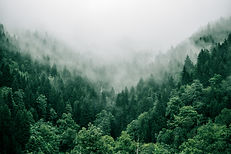Communities
One of the important aspects of the lawsuit is how oil exploration and extraction affect future genertions, especially when considering climate change.
Here we are going to dive into how oil drilling and exploration in the Barents Sea might affect the indigenous people of Norway, the Sami people, local fishermen and fisheries, local coastal communities and local industries in the affected areas.

The Sami People
The Sami culture is the oldest culture in large areas of Northern Norway and is currently experiencing a strong renaissance.
The Sami people live in Norway, Sweden, Finland and Russia and their total population is estimated to be around 80 000. The sami people have a lifestyle close to nature, utilizing mostly natural resources.
Throughout history, the Sami people have had to fight hard for their rights and recognition. They now face another challenge - a fight to protect the natural resources close to their culture.
They are mostly known for their reindeer herding, but there are also sea-samis that utilize the vast resources of the sea, and are reliant upon those resources as a part of their culture. The sea-samis are the ones mainly affected by the exploration and potential drilling after oil due to the effect on the fish stocks.
Around the world, including in the Arctic, there are disputes about ownership, utilization, management and conservation of traditional indigenous lands and resources - often caused by decisions or attempts to use traditional indigenous lands and resources for industrial purposes, including oil and gas exploration. This situation represents an enormous challenge, and in some cases threatens indigenous societies and their economies, cultures and ways of life.


Indigenous People have been, and in many cases still are, deprived of their human rights and fundamental freedom as distinct peoples. This has resulted in the dispossession of their lands, territories and resources, and prevented them from exercising their right to development in accordance with their needs and interests.
Arctic holds 25% of the known remaining global Oil and Gas resources. It is now probably the most attractive region in terms of new fields for exploration. Industrial development in the Arctic poses serious environmental and Human Rights challenges. It is one of the most pristine and vulnerable ecosystems in the world and the home of 40-50 distinct Indigenous People.
The above, combined with the Climate Change challenges of a warmer Arctic, are giving great cause for concern. The ACIA shows an accelerated warming taking place in the Arctic now. A warming of the Arctic will make the region more accessible, with less ice and longer snow free periods. On the other hand environmental risks will increase, as the permafrost melts and coastline erosion increases.
Photo: Orjan Bertelsen, Hurtigruten
Some challenges facing Indigenous Peoples regarding large scale resource extraction in the Arctic:






Climate Population Infrastructure Long distances Fragile environment Disputed jurisdiction


Local Fisheries and Fishermen
The Barents sea is home to vast resources of fish and is an important base for local, small- and large scale fisheries along the coast.
Fishermen and fisheries depend upon a stable and healthy population of fish to maintain their incomes.
Increased activity linked to oil exploration and production, such as seismic activity, physical disruptance and increased human activity in a vulnerable environment, the balance in the ecosystems may be disrupted.
This can further reduce the resource availability, and affect the fisheries.
Local Communities
The expansion of the oil industry in the Northern areas may also have positive effects.
Local communities further north may experience an increase in population numbers and employment due to the workplaces the industry will provide.
With new innovation and technology, and more people, this may lead to increased development in the relevant areas.
However, the expansion of coastal communities also requires increased infrastructure and other structural and social demands, which have to be met.

Local Industry
Local industries in the relevant areas will without a doubt be affected by an expansion of the oil industry.
Several other areas near fields of oil extraction have experienced a shift in the industry, where the industry goes from being a characteristic coastal industry with small fisheries to larger industries linked to oil extraction and processing.
One positive aspect is that several cities experience increased wealth and technological innovation and development due to increased relocation, but it threatens the coastal small-scale culture.




